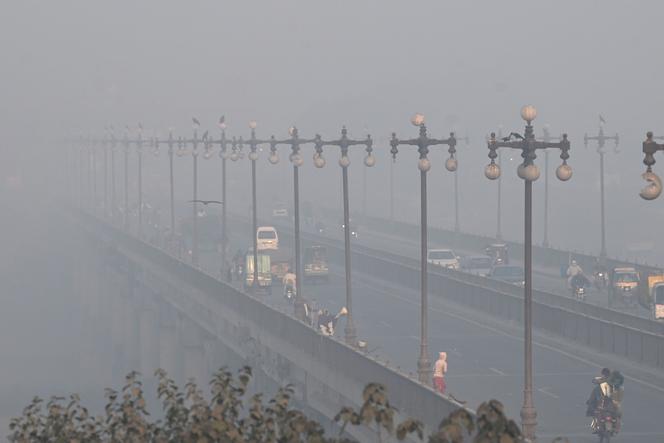


A thick, gray haze, a permanent smell of burning, completely stale air, assaulting the eyes, throat and lungs: Extreme winter pollution has tightened its grip on the inhabitants of northern India and Pakistan. In both neighboring regions, human health is under threat.
Sunday, November 17, turned into a nightmare in the Indian capital, New Delhi. The atmosphere steadily deteriorated throughout the day, nearing an air quality index of 1,500 at around 8:30 pm. On Monday, the 1,800 threshold was crossed. At this level, any prolonged outdoor activity is risky, as air quality is considered poor above index 50, and extremely poor above index 300.
Yet the streets were crowded and hardly any of the locals wore protective masks, unaware of the danger. "What do you want me to do? Stay at home and stop feeding my family?" raged Rajesh, who was selling the Himalayan ravioli specialty called momos from his cart parked on the outskirts of the Chhatarpur district.
The extreme deterioration in air quality was partly due to the deliberate burning of stubble in Punjab's fields, set alight by farmers to remove residues from the rice harvest and enable them to move on to the next crop more quickly. North-westerly winds blew the smoke back into the capital, where the difference between daytime and night-time temperatures created a kind of lid, preventing the pollutants from dissipating. On clear days, the atmosphere improved a little with the appearance of the sun, but on Sunday it remained obscured by mist.
The authorities, unable to put an end to these harmful farming practices, launched an emergency plan on Sunday, halting construction sites and banning trucks from entering the capital. Schools had already been closed earlier in the week. No one was expecting miracles.
The apathy of the public authorities and the inability of the Supreme Court to force the authorities to act against pollution has led to a repetition of this scenario every winter, with dramatic health consequences. The latest study by the journal The Lancet, published in 2021, estimated the number of pollution victims in India at 1.6 million deaths in 2019.
The Indian government has locked itself into denial, like the health minister who, in July, asserted before parliament that "there is no conclusive data available in the country to establish direct correlation of deaths or diseases exclusively due to air pollution." "This has been the government’s standard response to most public health issues – question the data or estimate and list the steps taken – be it air pollution, the Covid-19 pandemic, or malnutrition," disparaged Anand Krishnan, a doctor at Delhi's largest public hospital, in an opinion piece in The Indian Express.
You have 40.86% of this article left to read. The rest is for subscribers only.
